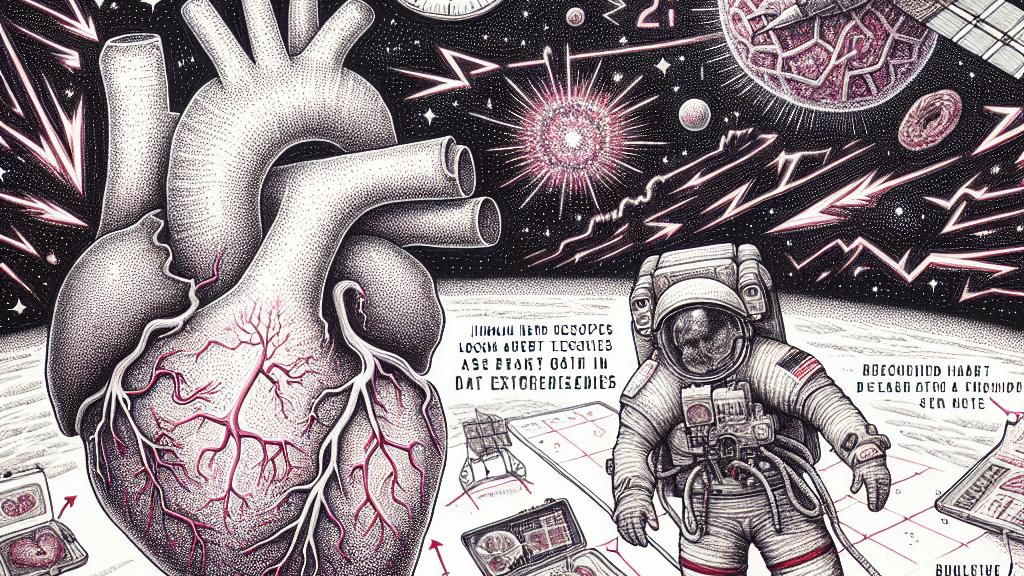Impact of Space Travel on Human Heart Health
Overview
- Recent studies reveal that engineered heart tissue shows aging signs after only a month in microgravity.
- The unique conditions of space significantly weaken heart function and alter gene expression.
- Understanding and addressing these changes is vital for maintaining astronaut heart health during extended missions.

Revealing the Effects of Microgravity on Heart Health
Cutting-edge research from the United States has brought to light a startling discovery: engineered human heart tissue exhibits accelerated signs of aging after spending just one month in the weightless environment of the International Space Station (ISS). This compelling study found that, while in space, the heart cells not only lost strength but also began to display erratic beating patterns, mimicking the biological realities of aging. These findings underscore the pressing need to analyze how microgravity impacts cardiovascular health, especially for astronauts like Sunita Williams, who face extended stays in space due to spacecraft issues. With space's extreme conditions exerting unprecedented stress on our bodies, this research marks a significant step toward understanding the ramifications of long-duration spaceflight.
Harnessing Technology: The 'Heart-on-a-Chip' Innovation
To dive deeper into this phenomenon, researchers introduced a groundbreaking 'heart-on-a-chip' system—a miniature model designed to imitate the natural functioning of a heart. By transforming human induced pluripotent stem cells into heart muscle tissue, they crafted tiny, bioengineered organs that beat in sync. Once aboard the ISS, these heart tissues were meticulously monitored through sophisticated sensors. The results were nothing short of alarming; after a mere 12 days, the contraction strength of the heart tissues had plummeted to nearly half of what was observed in similar samples that remained on Earth. This stark decline vividly illustrates the potential cardiovascular challenges astronauts may confront, reinforcing the urgent need for robust investigations into countermeasures that can ensure their well-being during prolonged missions.
Genetic Insights: Unraveling the Complexities of Space Effects
Upon returning to Earth, meticulous analyses of the heart tissues unveiled critical genetic transformations. Researchers documented an increase in genes related to inflammation and heart disorders, while essential genes responsible for normal contraction exhibited diminished expression. Such findings highlight the intricate interplay between the unique conditions of space and the biological mechanisms governing heart health. As we embark on ambitious missions toward Mars and beyond, comprehending these cardiovascular challenges becomes ever more essential. Developing targeted preventive strategies and refining health protocols for astronauts can make a profound difference, helping to ensure that our pioneering explorers remain healthy and strong on their bold journey into the cosmos.

Loading...